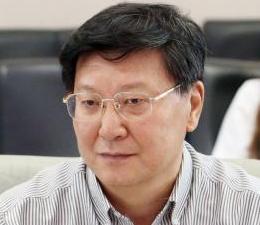Earlier this month the U.S. Senate passed by a vote of 63-35 the Currency Exchange Rate Oversight Reform Act of 2011. The bill is intended to subject imports from China to countervailing duties based on a presumed undervaluation of China's currency. The measure is similar to a bill that handily passed the House of Representatives in September 2010. Although a majority of Representatives have signed on as co-sponsors of the House version of the bill, the House’s Republican leadership has indicated it will not allow the measure to come up for a vote.
It is good that Congress will not be able to pass this bad piece of legislation. While there may be some tactical advantage in keeping pressure on Beijing through Congressional gamesmanship, Beijing will not act, because of a posturing U.S. law, against what it determines to be China’s best interests. Indeed, legislative efforts to force China to speed up appreciation of its currency through application of countervailing duties will likely lead to Beijing’s imposition of new tariffs on imports from the U.S., dramatically reducing sales of U.S. products and services to our third-largest export market and leading to the loss of more jobs in the U.S.
This outcome, of course, is exactly opposite of what the bill’s bipartisan sponsors promised: that by forcing China to raise the value of its currency against the dollar, the price of Chinese products in the U.S. would rise while the cost of U.S. goods in China would fall, leading to increased U.S. exports to China and decreased imports from China. Higher demand for American products would lead to the creation of more American jobs.
The logic of this argument is lovely in its simplicity, but fatally flawed nonetheless. The first problem one must deal with is whether in fact we are running a huge trade deficit with China simply because the currency is undervalued. Let’s look at that one for a moment. When Senator Chuck Schumer (D-N.Y.) first began advocating legislative action to address our trade deficit with China, he maintained that China’s currency was being held by Beijing at least 40 percent below its market value. Exactly how he determined this was not explained, but even assuming 40 percent was a verifiable figure, China’s currency has appreciated about 30 percent against the dollar since 2005, with no positive affect on the trade deficit.
Moreover, official appreciation of the yuan against the dollar in that time does not take into account inflation in China, which in the recent past has been running above six percent. Inflation has the same effect as currency appreciation in that it makes Chinese products more expensive and U.S. products sold in China cheaper. Add the effect of inflation to official currency appreciation and the real increase in value of the yuan against the dollar since 2005 is nearly 40 percent. Yet, Sen. Schumer still maintains that the yuan is undervalued by at least 30 percent. This is hard to explain except through the somewhat circular reasoning that China’s currency undervaluation is to blame for our trade deficit, we still have a large trade deficit despite the increase in the value of the yuan over the past six years, and therefore, since we still are running a huge trade deficit, the yuan is still undervalued.
While there is no doubt that exchange rates play a role in trade flows, there is more to the story of our trade deficit with China than the exchange rate. China is exporting more to the U.S. and the rest of the world in large measure due to trade displacement within Asia. Even as our deficit with China has grown over the past ten years, our deficits with other Asian export economies have fallen because much of the production for export undertaken by Japan, South Korea, Taiwan and Hong Kong shifted to China in that time.
But the fundamental reason why we buy goods from China is that Chinese products meet American quality standards and are sold at a low price that American consumers appreciate. Blunting Chinese exports to the U.S. through countervailing duties will not stop Americans from seeking bargains; the slack created by a decrease in Chinese exports to the U.S. will simply be taken up by other countries with equally low labor and input costs, and many products created for export in those countries will be made by the same multinationals now producing in China. Ironically, it will likely be Chinese companies themselves that lead the rush to offshore production if products made in China become less competitive globally.
There is only one way to unilaterally reduce our global trade deficit, including our trade deficit with China: buy less stuff. In China, personal savings rates average more than 40 percent of income. In the U.S., they are near zero. If we saved and invested more of our incomes, we would be buying less from China and other overseas suppliers. This would drive down our trade deficit while at the same time increasing the amount of capital available at home to meet our national debt obligations and for infrastructure and education, the very things in which China is now massively investing. Now that would be a novel idea.
Joseph Borich is the president of the Washington State China Relations Council. A career Foreign Service Officer, he was the U.S. Consul General in Shanghai from 1994-1997.



